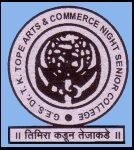Ralph Waldo Emerson
Ralph Waldo Emerson is one of the most notable figures in American literary and philosophical history. Here’s an in-depth look at his life and contributions.
अनुक्रमणिका
Early Life
Born: May 25, 1803, in Boston, Massachusetts, USA. Died: April 27, 1882, in Concord, Massachusetts, USA.
Emerson’s father was a minister, and his mother came from a long line of New England clergymen. After his father’s death when Emerson was just eight years old, his family faced financial hardships.
Education
He attended Boston Latin School and later Harvard College, where he studied theology and graduated in 1821. After graduation, he taught at his brother’s school for young women before attending Harvard Divinity School.
Career
Minister: Emerson became a minister at the Second Church in Boston but soon became dissatisfied with organized religion. His doubts led him to resign in 1832.
Travel and Literary Pursuits: He traveled to Europe, where he met influential writers and thinkers, such as Samuel Taylor Coleridge, Thomas Carlyle, and William Wordsworth. Inspired, he returned to America and embarked on a literary career.
Transcendentalism: Emerson became a leader in the Transcendentalist movement. His essay “Nature” (1836) laid out many of the movement’s central ideas, and he helped launch “The Dial,” a journal dedicated to Transcendentalist thought.
Lecturer and Essayist: Emerson became a renowned lecturer, giving more than 1,500 public lectures across the U.S. His essays, such as “Self-Reliance” and “The American Scholar,” became classics of American literature and philosophy.
Poet: In addition to his essays, Emerson also published poetry. Though not as widely acclaimed as his prose, his poems still resonated with his philosophical ideas.
Personal Life
Emerson married Ellen Tucker in 1829, but she tragically died of tuberculosis just 17 months later. In 1835, he married Lydia Jackson, and the couple had four children.
Later Years and Legacy
In his later years, Emerson’s health declined, and he wrote less but remained a respected figure. His ideas influenced generations of writers, philosophers, and reformers, including Henry David Thoreau, Walt Whitman, and the broader American Romantic movement.
Emerson’s emphasis on individualism, self-reliance, and the spiritual connection between man and nature continues to be celebrated and debated. His writings are seen as foundational texts in American literature, philosophy, and democratic thought.
Conclusion
Ralph Waldo Emerson’s life and work represent a profound shift in American intellectual life. He was both a product of his times and a catalyst for new ways of thinking. His ideas continue to challenge and inspire thinkers and readers around the world.
Emerson’s writings remain an essential part of the American literary canon and provide valuable insights into human nature, society, and spirituality. Whether you’re engaging with his essays or his poetry, Emerson’s thought-provoking insights continue to resonate.
![]()
